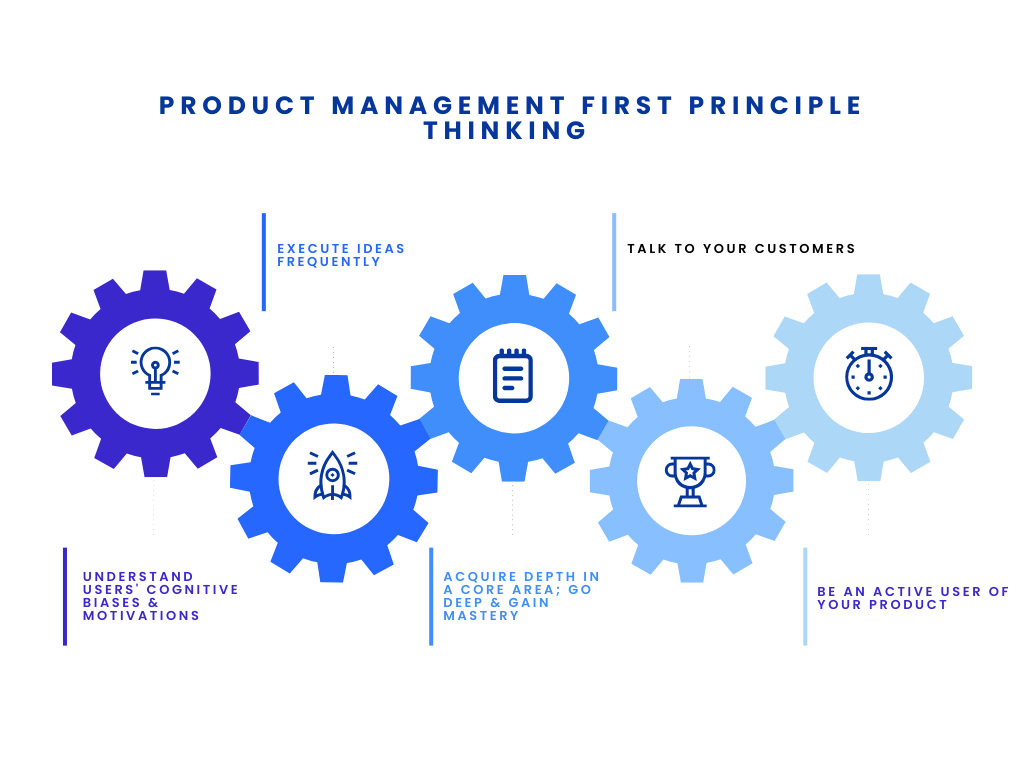Mastering First Principles Thinking: Part 1
This article shares 10 of my best first principles thinking in product management
I wrote this to be an easy read—perfect for your commute, while waiting for your bus, or just scrolling through the internet. Product management has been my only career all my life, with both failures and successes experienced along the way. Through it all, one thing I’ve consistently done is journal and document my journey. I’m currently in talks with editors to publish my product management book in June 2025.
P.S; I’ll soon be inviting folks to join my closed product community, so stay tuned!
What is First Principles?
First principles is an approach to thinking that breaks down complex product endeavors to their most fundamental truths, rather than leaning into regurgitated analogies or the “defined” way of doing things.
The perfect illustration is Airbnb. Rather than go build a traditional / normal hotel booking website to solve problems they saw, they took multiple steps back and broke the problem down to first principles instead. For Airbnb, their core truths were:
#1: People need a place to sleep when traveling.
#2: Many people have spare rooms in their houses/apartments just laying fallow/unused.
#3: With trust problem solved, people would be willing to share their space to earn money.
This then led them to create a totally novel idea of an accommodation marketplace, rather than lazily copying traditional hotel booking systems. Of course, they battled with trust issues, and first principles thinking led them again to their innovative review system, profiles, and verification processes.
So here’s 10 of my 80 (so far documented) thoughts about product management and how I think about them from a first principles standpoint:
1. Speaking with customers will never be an alternative to any other thing! Not strategy, not execution, not quantitative data.
2. The more likely you are to be an actual user of your product the better the results.
3. Rarely is the lack of good ideas a problem. Lack of proper execution is.
4. It is all about providing value – Customer and Business value alike.
5. The harder problems are more rewarding than the easy ones.
6. Product managers should always be writing – daily! I use physical notes over everything.
7. Studying and being intentional about cognitive biases has been an unfair advantage for me. Learn why people make decisions, how persuasive are your solutions to their problems?
8. Yes, iterate fast! But your vision will painfully (and rightfully) take time.
9. It is true that PMs must be great at multiple skills. But while breadth is important in product, acquiring depth in one or two core competencies is very valuable. Go DEEP in a core area and gain mastery such that you are probably the best in the world at it!
10. When building experiences, be intentional about the holistic experience and how it will be impacted.
What are some first principles you have observed in your product management journey? Share them in the comment section.
Until next time, Keep shipping!
Salem.



First Principles thinking truly is the bedrock of innovation, and I love how you tied it to Airbnb’s journey- a masterclass in approaching problems.
Reflecting on my product management journey, here are a few first principles I’ve embraced:
1. Systems Fail Without Trust: No matter how robust the technical architecture or feature set, trust (security, transparency, reliability) is foundational to adoption. The best products prioritize both user experience and the integrity of their core systems.
2. Metrics Are Stories Waiting to Be Told (case study: #SpotifyWrapped):Quantitative data doesn’t just inform decisions—it narrates user behavior, and the story it tells should actively guide product evolution.
Curious to hear your thoughts on balancing first principles thinking with the practical constraints of legacy systems/established markets.
How do you push boundaries while respecting current realities?